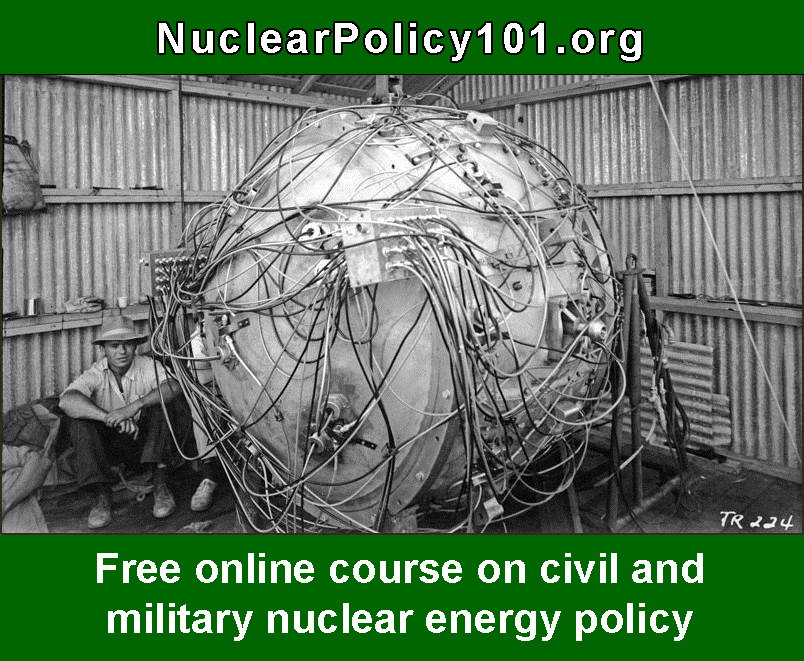Rebooted. Albert Wohlstetter Dot Com is undergoing some renovation, but I hope you’ll like not only the redesign, but also the new content that I’ll be introducing in the days to come.
First off, I’m happy to write that Albert Wohlstetter Dot Com is now a project of the Nonproliferation Policy Education Center (NPEC), an organization based in Washington, DC.
Before continuing, I suppose that I should introduce (or, as it were, re-introduce) myself. My name is Robert Zarate, and I maintain this website. I’ve done several years of archival research on the Wohlstetters, and interviewed a host of their colleagues, students and critics.
In lieu of a true “About This Site” webpage, I’ll just make the following remarks and update/revise them as this website develops…
First off, on this website I shall sometimes refer to Albert and Roberta Wohlstetter by their first names because such informality will enable me to economize my words.
Second, to state provisionally in several paragraphs this website’s purpose:
America’s challenges in the 21st century are many, serious and complex. Continuing instabilities in the Persian Gulf have highlighted American energy vulnerabilities. Such vulnerabilities have prompted the U.S. government to consider increased commitments not only to civilian nuclear energy, but also to extremely sensitive nuclear fuel-making activities. But at the same time the United States and its allies are trying to prevent nuclear fuel-making and fissile material from spreading, especially to Iran and other hostile regimes that would boldly exploit ambiguities in the global nuclear nonproliferation rules to come within months–or even days–of building nuclear explosives. For the spread of nuclear weapons to hostile regimes not only would threaten U.S. security and the cohesiveness of America’s alliances, and perhaps even encourage U.S. allies to pursue nuclear weapons-options; but also could increase the risk of potentially undeterrable violent extremists acquiring nuclear explosives.
These are some of the very same strategic challenges that Albert James Wohlstetter (1913-1997) and Roberta Mary Morgan Wohlstetter (1912-2007) anticipated decades ago. Over the course of their nearly fifty-year careers in strategy, the Wohlstetters produced hundreds of writings that analyzed strategic policy issues including Persian Gulf instabilities, America’s energy vulnerabilities, the military potential of civilian nuclear energy, nuclear proliferation, nuclear and non-nuclear deterrence, missile defense, alliance dynamics and cohesiveness, and violent extremism.
By and large, though, Albert and Roberta’s writings remain widely dispersed, poorly cataloged and, in many cases, difficult for all but the most determined and resourceful to find. As a result, those interested in learning more about the Wohlstetters–a group that includes not only decision-makers and policy analysts, but also journalists, academics and students–have not been able to read first-hand their writings. Instead, they often have had to rely on books and articles that offer second-hand (in some cases, even third-hand) accounts of Albert and Roberta’s works.
Unfortunately, many of these second- and third-hand accounts have been incomplete; some have seriously misunderstood or even consciously distorted the arguments, the historical context and the continuing policy relevance of the Wohlstetters’ writings. In particular, when recent books and articles on 21st century “neoconservativism” have discussed the Wohlstetters (neither of whom ever identified themselves as “neoconservative,” or were referred to as “neoconservatives” by the secondary literature before 2001/2002), the authors of these accounts have tended not to read closely and analyze dispassionately Albert and Roberta’s works, but rather to scour them for passages that then are cited, often in a manner lacking in textual and historical context, as evidence in larger arguments either for or against today’s “neoconservatives.” In turn, these accounts, and those who read them, frequently are drawing precisely the wrong conclusions about the Wohlstetters and the continuing importance of their strategic analyses.
“Is it too much to ask,” wrote Sir Michael Howard, the renowned military historian and self-described critic of Albert Wohlstetter, in a 1992 article for Survival, the International Institute for Strategic Studies’ journal, “[for someone] to bring together [Albert and Roberta’s] widely scattered articles and publish them in a solid lasting form” as part of “the indispensable nucleus of a strategic studies library when all else has been swept away?”
In an ongoing effort, Albert Wohlstetter Dot Com aims to answer this call by providing readers with access to Albert and Roberta’s primary writings, as well as a clearer understanding of the full scope, historical context and continuing relevance of the Wohlstetters’ respective careers and contributions.
Thanks for visiting this site.





